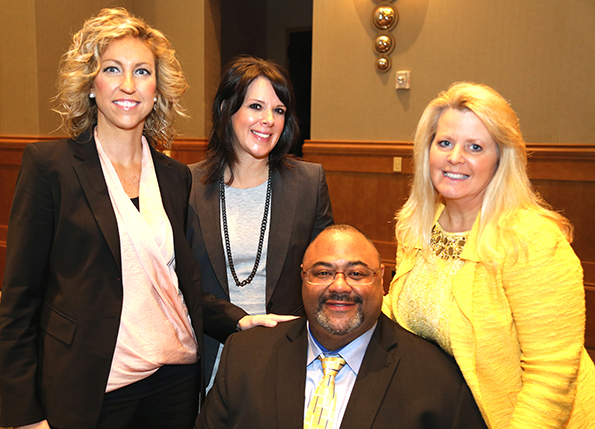
As restaurant teams prepare for the next five to 15 years, human resources departments will need to partner even more closely with larger brands to help companies win the increasingly tight labor market, executives said Wednesday.
“First and foremost, what our HR partners can provide more is really understanding the trends and being the expert, saying ‘these are the ones your need to worry about’ and ‘these are the ones you don’t,” said Kelli Valade, executive vice president and chief operating officer at Chili’s Grill & Bar, a division of Dallas-based Brinker International Inc.
Valade appeared Wednesday on a Women’s Foodservice Forum Leadership Development Conference panel in Dallas with Julie Juvera, vice president of people and field operations at Los Angeles-based California Pizza Kitchen; ElMond Tolbert, a human resources consultant with Tolbert Enterprise; and moderator Karen Fenaroli, senior vice president and NYC managing director of EFL Associates.
“Turnover for our industry is back up to the sky-high levels, but they are not unprecedented,” Valade said. “They are about where they were 10 years ago,” she said, and said the levels reflect the impact of low unemployment rates, which were 4.9 percent in February, seen in middle of the century’s first decade.
But other trends, Valade said, are significant for all operators, including minimum-wage increases and whether technologies might fill the gap.
“I think if somebody cracks the code on quality of life in this industry,” Valade said, “it could be absolutely huge.” Other industries, such as health care and public safety — such as firefighters — have instituted schedules such as three days on and four off to improve the safety and well-being of the workers, she said.
Valade said 2020 or 2030 might provide the restaurant industry with a different model that could improve the quality of life. “That could help us be ‘the industry of choice,’” she said. “We’ve been talking about that far too long.”
Juvera said 2020 is “dauntingly” close, and California Pizza Kitchen is building an employee community within its organization to help retain workers.
“There is a war on talent,” Juvera said. “The battlefield is from a recruiting standpoint but also from a retention standpoint.”
Differentiating a brand from the others is difficult when compensation plans are so similar, benefits are indistinguishable and quality of life is much the same, she said.
“Part of that is defining the ‘why,’” Juvera said. “Why should I choose California Pizza Kitchen? Why should I work for you, at the hourly level or the management level or beyond?”
As part of its larger strategy, Juvera said California Pizza Kitchen has created a community within the employee ranks “so they feel valued, they feel engaged, they feel they are part of something bigger than themselves.”
Chili’s, for example, calls its stalwart employees “Chiliheads,” and California Pizza Kitchen calls its team “Epic Nation,” Juvera said. The company provides platforms for employees to express their culture with an internal communications portal as well as social media with the hashtag #BestJobEverCPK.
Because the company has units abroad, the hashtag has been translated into languages for each of the nations where the company has restaurants.
“You are part of a global brand — a bigger family — and we are all in this together to take care of one another,” she said.
The labor equation will continue to be challenging, but Juvera likened the steps taken so far to the adage of “How do you eat an elephant? One bite at a time.”
Tolbert advised human resources leaders to make sure tactics are communicated to and implemented by staff members. “We need to pull back and make sure the folks we are relying on to do the day-to-day tactical stuff are doing their job,” he said. “No one is going to care about your strategic plan if they are not getting paid right.”
Fenaroli said the restaurant industry has an authentic vision and engagement, but the young talent must be taught to make good decisions.
“The thing 2030 really will need is creativity,” she said. “It needs to break the rules. It needs to be completely adaptive.”
Contact Ron Ruggless at [email protected].
Follow him on Twitter: @RonRuggless

